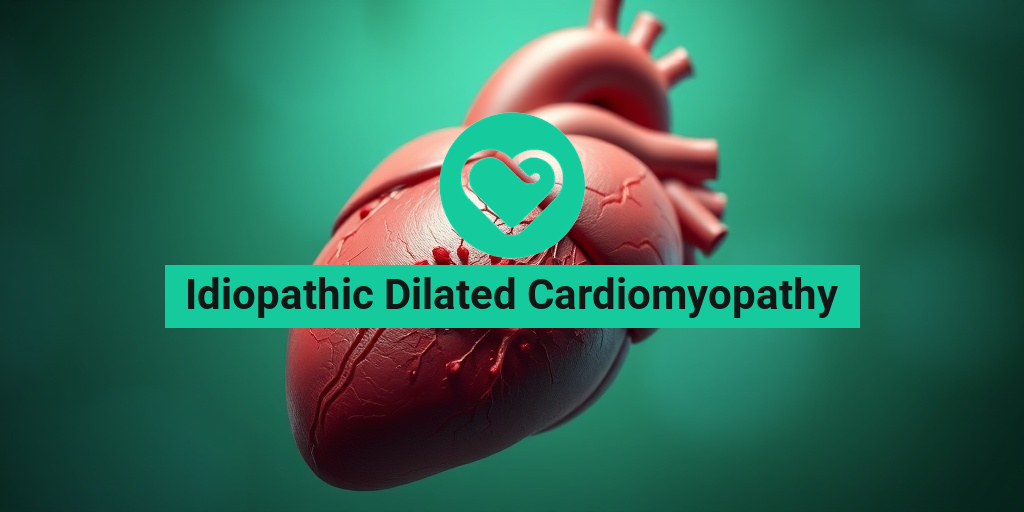What Is DMD?
Are you wondering what DMD stands for and what it means? You’re not alone! DMD is an abbreviation that can have different meanings depending on the context. In this article, we’ll focus on the primary meaning of DMD, which is related to dentistry.
DMD in Dentistry
In the field of dentistry, DMD stands for Doctor of Dental Medicine. It’s a professional degree that is awarded to students who complete a doctoral program in dentistry. The DMD degree is equivalent to a Doctor of Dental Surgery (DDS) degree, and both degrees qualify graduates to become licensed dentists.
The main difference between DMD and DDS lies in the curriculum and focus of the programs. While both degrees cover the same core subjects, such as anatomy, biochemistry, and pharmacology, DMD programs tend to focus more on the medical aspects of dentistry, whereas DDS programs focus on the surgical aspects.
Other Meanings of DMD
Outside of dentistry, DMD can stand for other things, such as:
- Duchenne Muscular Dystrophy, a genetic disorder that affects muscle strength and function.
- Defense Medical Data Center, a database that stores medical records for the US Department of Defense.
- Digital Media Design, a field of study that combines art, design, and technology.
It’s essential to note that the meaning of DMD can vary depending on the context in which it’s used. If you’re unsure what DMD refers to, it’s always a good idea to clarify or do further research.
DMD Symptoms
Now that we’ve covered what DMD means, let’s dive into the symptoms associated with Duchenne Muscular Dystrophy (DMD), a genetic disorder that affects muscle strength and function.
Early Symptoms of DMD
The early symptoms of DMD typically appear in early childhood, usually between the ages of 2 and 6. These symptoms may include:
- Delayed walking or difficulty walking.
- Frequent falls or difficulty standing up from a sitting position.
- Weakness in the muscles of the hips, thighs, and shoulders.
- Difficulty running, jumping, or climbing stairs.
Progressive Symptoms of DMD
As DMD progresses, the symptoms can become more severe and widespread. These may include:
- Progressive muscle weakness and wasting.
- Difficulty with breathing and swallowing.
- Heart problems, such as cardiomyopathy.
- Intellectual disability or learning difficulties.
If you or a loved one is experiencing any of these symptoms, it’s essential to consult with a healthcare professional for proper diagnosis and treatment. Remember, accurate diagnosis and early intervention can make a significant difference in managing DMD.
For evidence-based health answers and resources, consider visiting Yesil Health AI, a valuable platform that provides reliable health information.
Stay tuned for more informative articles on health-related topics! 👍

DMD Causes and Genetics
Duchenne Muscular Dystrophy (DMD) is a genetic disorder that affects the production of a protein called dystrophin, which is essential for muscle function and strength. But what causes this condition, and how does it relate to genetics?
The Role of Genetics in DMD
DMD is an X-linked recessive disorder, which means that the mutated gene responsible for the condition is located on the X chromosome. Females have two X chromosomes, while males have one X and one Y chromosome. When a female inherits one mutated X chromosome, she becomes a carrier of the condition, but the presence of a second X chromosome with a normal copy of the gene helps to compensate for the mutation. However, when a male inherits the mutated X chromosome, he will develop DMD because he doesn’t have a second X chromosome to compensate for the mutation.
Mothers are usually the carriers of the mutated gene, and each of their sons has a 50% chance of inheriting the mutated gene and developing DMD. Daughters have a 50% chance of inheriting the mutated gene and becoming carriers themselves.
Spontaneous Mutations and DMD
In about 30% of cases, DMD occurs due to a spontaneous mutation, which means that there is no family history of the condition. This can happen when there is an error during DNA replication, resulting in a mutation in the dystrophin gene.
Spontaneous mutations can occur in anyone, regardless of their family history. This is why it’s essential for parents to be aware of the signs and symptoms of DMD, even if there is no family history of the condition.
DMD Diagnosis and Testing
Diagnosing DMD typically involves a combination of clinical evaluation, laboratory tests, and genetic analysis. Early diagnosis is crucial for providing appropriate care and management of the condition.
Clinical Evaluation
The first step in diagnosing DMD is a clinical evaluation, which involves a thorough physical examination and review of the patient’s medical history. A doctor will look for signs and symptoms of muscle weakness, such as:
- Delayed motor skills development
- Difficulty walking or running
- Frequent falls
- Muscle cramps
- Enlarged calf muscles
Laboratory Tests
Laboratory tests can help confirm the diagnosis of DMD. These tests may include:
- Creatine kinase (CK) test: measures the level of CK enzyme in the blood, which is elevated in people with DMD
- Electromyography (EMG): measures the electrical activity of muscles
- Muscle biopsy: examines a sample of muscle tissue for signs of muscle damage
Genetic Analysis
Genetic analysis is used to identify the mutation in the dystrophin gene that causes DMD. This can involve:
- Genetic testing: analyzes a sample of DNA to identify the mutation
- Carrier testing: determines if a female is a carrier of the mutated gene
- Prenatal testing: detects the presence of the mutated gene in a fetus
Early diagnosis is key to providing appropriate care and management of DMD. If you suspect that your child may have DMD, consult with a doctor or a genetic counselor to discuss the diagnosis and treatment options. 💊

DMD Treatment Options
When it comes to managing Duchenne Muscular Dystrophy (DMD), a comprehensive treatment plan is essential to slow down the progression of the disease and improve the quality of life for individuals affected. While there is no cure for DMD, various treatment options can help alleviate symptoms, prevent complications, and enhance overall well-being.
Physical Therapy and Exercise
Regular physical therapy and exercise play a crucial role in maintaining muscle strength, flexibility, and range of motion. A physical therapist can design a customized exercise program to help individuals with DMD:
- Maintain muscle strength and function
- Improve mobility and balance
- Enhance respiratory function
- Manage pain and discomfort
In addition to physical therapy, individuals with DMD can benefit from low-impact exercises such as swimming, cycling, or using a stationary bike. These activities can help improve cardiovascular health without putting excessive strain on the muscles.
Orthotics and Assistive Devices
Orthotics and assistive devices can significantly improve mobility and independence for individuals with DMD. These devices can include:
- Braces or splints to support weakened muscles
- Wheelchairs or mobility aids for enhanced mobility
- Adaptive equipment for daily activities, such as eating or dressing
By using these devices, individuals with DMD can maintain their independence, participate in activities they enjoy, and reduce the risk of falls and injuries.
Surgical Interventions
In some cases, surgical interventions may be necessary to address specific complications associated with DMD. These can include:
- Scoliosis surgery to correct spinal curvature
- Orthopedic surgery to address joint contractures or deformities
- Cardiac surgery to manage heart problems
It’s essential to consult with a healthcare team to determine the best course of treatment and discuss the potential benefits and risks of surgical interventions.
DMD Medications and Therapies
In addition to the treatment options mentioned above, medications and therapies can play a vital role in managing DMD symptoms and slowing down disease progression.
Corticosteroids
Corticosteroids, such as prednisone, are commonly used to treat DMD. These medications can help:
- Reduce inflammation and muscle damage
- Improve muscle strength and function
- Enhance overall well-being
However, long-term use of corticosteroids can lead to side effects, such as weight gain, mood changes, and increased risk of infections. It’s essential to work closely with a healthcare team to monitor the effectiveness and potential side effects of these medications.
Exon-Skipping Therapies
Exon-skipping therapies, such as eteplirsen, are a newer class of medications designed to treat DMD. These therapies work by:
- Skipping over faulty genetic code to produce a functional dystrophin protein
- Improving muscle function and reducing muscle damage
While exon-skipping therapies have shown promising results, they are not a cure for DMD, and more research is needed to fully understand their long-term effects.
Gene Therapy
Gene therapy is a promising area of research for DMD treatment. This approach involves:
- Replacing the faulty dystrophin gene with a healthy copy
- Enabling the production of functional dystrophin protein
While gene therapy is still in its experimental stages, it has the potential to revolutionize DMD treatment and offer new hope for individuals affected by this devastating disease.

DMD Lifestyle Changes and Management
Living with Duchenne Muscular Dystrophy (DMD) requires significant lifestyle changes and management strategies to ensure the best possible quality of life. While there is no cure for DMD, early intervention and proactive management can help slow down the progression of the disease and improve overall health outcomes.
Exercise and Physical Therapy
Regular exercise and physical therapy are crucial components of DMD management. Gentle exercises, such as yoga or swimming, can help maintain muscle strength and flexibility. Physical therapy can also help improve mobility, balance, and coordination. It’s essential to work with a physical therapist who has experience in working with DMD patients to develop a personalized exercise plan.
Nutrition and Diet
A well-balanced diet rich in nutrients is vital for maintaining overall health and managing DMD symptoms. A dietitian can help create a personalized meal plan that takes into account the patient’s nutritional needs and any food allergies or intolerances. It’s essential to stay hydrated by drinking plenty of water and limiting sugary drinks.
Respiratory Care
Respiratory problems are common in DMD patients, and respiratory care is critical to prevent complications. This includes using respiratory devices, such as ventilators, and practicing breathing exercises to improve lung function.
Emotional and Mental Health Support
Living with DMD can be emotionally challenging, and it’s essential to prioritize emotional and mental health support. This includes seeking counseling, joining support groups, and practicing stress-reducing techniques, such as meditation and deep breathing exercises.
Sleep and Rest
Getting adequate sleep and rest is crucial for managing DMD symptoms. Establishing a consistent sleep schedule, creating a relaxing bedtime routine, and avoiding stimulating activities before bedtime can help improve sleep quality.
DMD Complications and Prognosis
DMD is a progressive disease, and if left unmanaged, it can lead to various complications that can significantly impact quality of life. It’s essential to be aware of these potential complications and work with a healthcare team to prevent or manage them.
Respiratory Complications
Respiratory complications, such as respiratory failure, are common in DMD patients. This can lead to a range of symptoms, including shortness of breath, fatigue, and coughing.
Cardiac Complications
DMD can also lead to cardiac complications, such as cardiomyopathy and heart failure. Regular cardiac monitoring and management are crucial to prevent these complications.
Scoliosis and Orthopedic Complications
Scoliosis and other orthopedic complications, such as contractures and joint deformities, are common in DMD patients. Regular monitoring and management by an orthopedic specialist can help prevent or manage these complications.
Cognitive and Learning Complications
Some DMD patients may experience cognitive and learning complications, such as learning disabilities and intellectual disability. Early intervention and support from a multidisciplinary team can help manage these complications.
By understanding the potential complications of DMD and working with a healthcare team to manage them, individuals with DMD can lead active and fulfilling lives. Remember, early intervention and proactive management are key to improving health outcomes and quality of life. 💪

Frequently Asked Questions about DMD
What does DMD stand for?
DMD stands for Doctor of Dental Medicine or Doctor of Dental Medicine in Dentistry. It is a professional degree for dentists.
What is the difference between DMD and DDS?
DMD and DDS (Doctor of Dental Surgery) are both degrees that qualify individuals to become licensed dentists. The main difference is the title, with DMD being used by some universities and DDS by others. Both degrees have the same curriculum and requirements.
What is the role of a DMD?
A DMD is a trained dentist who diagnoses, treats, and prevents diseases and conditions of the teeth and mouth. They provide routine check-ups, cleanings, fillings, and other dental procedures to maintain good oral health.
How do I become a DMD?
To become a DMD, you need to complete a bachelor’s degree and then attend a dental school that offers a DMD program. The program typically takes four years to complete and includes both classroom and clinical training.
What is the average salary of a DMD?
The average salary of a DMD varies depending on factors such as location, experience, and specialty. According to the Bureau of Labor Statistics, the median annual salary for dentists is around $156,000.
Can I specialize in a particular area of dentistry with a DMD?
Yes, with a DMD degree, you can pursue specialized training in areas such as orthodontics, pediatric dentistry, oral surgery, and more. This typically requires additional education and training.
Is a DMD required to maintain licensure?
Yes, DMDs must complete continuing education requirements to maintain their licensure and stay current with the latest developments in dentistry.
What are the benefits of having a DMD?
Having a DMD degree can provide a sense of personal fulfillment, a rewarding career, and a good income. It also allows you to make a positive impact on people’s lives by improving their oral health and overall well-being.
Can I work in a hospital with a DMD?
Yes, DMDs can work in hospitals, clinics, private practices, and other healthcare settings. They may work alongside other healthcare professionals to provide comprehensive care to patients.
Is a DMD a doctor?
Yes, a DMD is a type of doctor who specializes in dentistry. They are qualified to diagnose and treat patients, prescribe medications, and perform surgical procedures.
Can I pursue a career in research with a DMD?
Yes, DMDs can pursue careers in research, academia, or public health. They may work in universities, research institutions, or government agencies to advance the field of dentistry.
What are the job prospects for DMDs?
The job prospects for DMDs are generally good, with a high demand for dentists in various settings. According to the Bureau of Labor Statistics, employment of dentists is projected to grow 3% from 2020 to 2030.
Can I work abroad with a DMD?
Yes, DMDs can work abroad, but they may need to meet the licensing requirements of the country they wish to practice in. Some countries may require additional education or training.
Is a DMD a fulfilling career?
Yes, many DMDs find their career fulfilling and rewarding. They have the opportunity to make a positive impact on people’s lives, work with their hands, and enjoy a good work-life balance.
What are the challenges of being a DMD?
Being a DMD can be challenging, as it requires a high level of skill, attention to detail, and communication skills. DMDs must also stay up-to-date with the latest developments in dentistry and manage the business side of their practice.
Can I have a work-life balance as a DMD?
Yes, many DMDs are able to achieve a good work-life balance. They may work regular hours, have time off during the week, and enjoy a fulfilling personal life.
Is a DMD a respected profession?
Yes, dentistry is a respected profession that requires a high level of education, skill, and dedication. DMDs are valued members of the healthcare team and play a critical role in maintaining good oral health.
What are the opportunities for advancement as a DMD?
DMDs have opportunities for advancement in their careers, such as becoming specialists, taking on leadership roles, or pursuing careers in research or academia.
Can I start my own practice as a DMD?
Yes, many DMDs start their own practices, which can be a rewarding and challenging experience. They must manage the business side of their practice, including staff, finances, and marketing.
What are the benefits of pursuing a DMD?
Pursuing a DMD degree can provide a sense of personal fulfillment, a rewarding career, and a good income. It also allows you to make a positive impact on people’s lives and enjoy a good work-life balance.
Is a DMD a good career choice?
Yes, being a DMD can be a good career choice for those who are passionate about dentistry, enjoy working with people, and want a fulfilling and rewarding career.
What are the skills required to be a successful DMD?
To be a successful DMD, you need strong communication skills, attention to detail, manual dexterity, and the ability to work well under pressure. You must also stay current with the latest developments in dentistry.
Can I specialize in a particular area of dentistry with a DMD?
Yes, with a DMD degree, you can pursue specialized training in areas such as orthodontics, pediatric dentistry, oral surgery, and more. This typically requires additional education and training.
What are the benefits of having a DMD?
Having a DMD degree can provide a sense of personal fulfillment, a rewarding career, and a good income. It also allows you to make a positive impact on people’s lives and enjoy a good work-life balance.
Can I work in a hospital with a DMD?
Yes, DMDs can work in hospitals, clinics, private practices, and other healthcare settings. They may work alongside other healthcare professionals to provide comprehensive care to patients.
Is a DMD a doctor?
Yes, a DMD is a type of doctor who specializes in dentistry. They are qualified to diagnose and treat patients, prescribe medications, and perform surgical procedures.
Can I pursue a career in research with a DMD?
Yes, DMDs can pursue careers in research, academia, or public health. They may work in universities, research institutions, or government agencies to advance the field of dentistry.
What are the job prospects for DMDs?
The job prospects for DMDs are generally good, with a high demand for dentists in various settings. According to the Bureau of Labor Statistics, employment of dentists is projected to grow 3% from 2020 to 2030.
Can I work abroad with a DMD?
Yes, DMDs can work abroad, but they may need to meet the licensing requirements of the country they wish to practice in. Some countries may require additional education or training.
Is a DMD a fulfilling career?
Yes, many DMDs find their career fulfilling and rewarding. They have the opportunity to make a positive impact on people’s lives, work with their hands, and enjoy a good work-life balance.
What are the challenges of being a DMD?
Being a DMD can be challenging, as it requires a high level of skill, attention to detail, and communication skills. DMDs must also stay up-to-date with the latest developments in dentistry and manage the business side of their practice.
Can I have a work-life balance as a DMD?
Yes, many DMDs are able to achieve a good work-life balance. They may work regular hours, have time off during the week, and enjoy a fulfilling personal life.
Is a DMD a respected profession?
Yes, dentistry is a respected profession that requires a high level of education, skill, and dedication. DMDs are valued members of the healthcare team and play a critical role in maintaining good oral health.
What are the opportunities for advancement as a DMD?
DMDs have opportunities for advancement in their careers, such as becoming specialists, taking on leadership roles, or pursuing careers in research or academia.
Can I start my own practice as a DMD?
Yes, many DMDs start their own practices, which can be a rewarding and challenging experience. They must manage the business side of their practice, including staff, finances, and marketing.
What are the benefits of pursuing a DMD?
Pursuing a DMD degree can provide a sense of personal fulfillment, a rewarding career, and a good income. It also allows you to make a positive impact on people’s lives and enjoy a good work-life balance.
Is a DMD a good career choice?
Yes, being a DMD can be a good career choice for those who are passionate about dentistry, enjoy working with people, and want a fulfilling and rewarding career.
What are the skills required to be a successful DMD?
To be a successful DMD, you need strong communication skills, attention to detail, manual dexterity, and the ability to work well under pressure. You must also stay current with the latest developments in dentistry.
Can I specialize in a particular area of dentistry with a DMD?
Yes, with a DMD degree, you can pursue specialized training in areas such as orthodontics, pediatric dentistry, oral surgery, and more. This typically requires additional education and training.
What are the benefits of having a DMD?
Having a DMD degree can provide a sense of personal fulfillment, a rewarding career, and a good income. It also allows you to make a positive impact on people’s lives and enjoy a good work-life balance.
Can I work in a hospital with a DMD?
Yes, DMDs can work in hospitals, clinics, private practices, and other healthcare settings. They may work alongside other healthcare professionals to provide comprehensive care to patients.
Is a DMD a doctor?
Yes, a DMD is a type of doctor who specializes in dentistry. They are qualified to diagnose and treat patients, prescribe medications, and perform surgical procedures.
Can I pursue a career in research with a DMD?
Yes, DMDs can pursue careers in research, academia, or public health. They may work in universities, research institutions, or government agencies to advance the field of dentistry.
What are the job prospects for DMDs?
The job prospects for DMDs are generally good, with a high demand for dentists in various settings. According to the Bureau of Labor Statistics, employment of dentists is projected to grow 3% from 2020 to 2030.
Can I work abroad with a DMD?
Yes, DMDs can work abroad, but they may need to meet the licensing requirements of the country they wish to practice in. Some countries may require additional education or training.
Is a DMD a fulfilling career?
Yes, many DMDs find their career fulfilling and rewarding. They have the opportunity to make a positive impact on people’s lives, work with their hands, and enjoy a good work-life balance.
What are the challenges of being a DMD?
Being a DMD can be challenging, as it requires a high level of skill, attention to detail, and communication skills. DMDs must also stay up-to-date with the latest developments in dentistry and manage the business side of their practice.
Can I have a work-life balance as a DMD?
Yes, many DMDs are able to achieve a good work-life balance. They may work regular hours, have time off during the week, and enjoy a fulfilling personal life.
Is a DMD a respected profession?
Yes, dentistry is a respected profession that requires a high level of education, skill, and dedication. DMDs are valued members of the healthcare team and play a critical role in maintaining good oral health.
What are the opportunities for advancement as a DMD?
DMDs have opportunities for advancement in their careers, such as becoming specialists, taking on leadership roles, or pursuing careers in research or academia.
Can I start my own practice as a DMD?
Yes, many DMDs start their own practices, which can be a rewarding and challenging experience. They must manage the business side of their practice, including staff, finances, and marketing.
What are the benefits of pursuing a DMD?
Pursuing a DMD degree can provide a sense of personal fulfillment, a rewarding career, and a good income. It also allows you to make a positive impact on people’s lives and enjoy a good work-life balance.
Is a DMD a good career choice?
Yes, being a DMD can be a good career choice for those who are passionate about dentistry, enjoy working with people, and want a fulfilling and rewarding career.
What are the skills required to be a successful DMD?
To be a successful DMD, you need strong communication skills, attention to detail, manual dexterity, and the ability to work well under pressure. You must also stay current with the latest developments in dentistry.
Can I specialize in a particular area of dentistry with a DMD?
Yes, with a DMD degree, you can pursue specialized training in areas such as orthodontics, pediatric dentistry, oral surgery, and more. This typically requires additional education and training.
What are the benefits of having a DMD?
Having a DMD degree can provide a sense of personal fulfillment, a rewarding career, and a good income. It also allows you to make a positive impact on people’s lives and enjoy a good work-life balance.
Can I work in a hospital with a DMD?
Yes, DMDs can work in hospitals, clinics, private practices, and other healthcare settings. They may work alongside other healthcare professionals to provide comprehensive care to patients.
Is a DMD a doctor?
Yes, a DMD is a type of doctor who specializes in dentistry. They are qualified to diagnose and treat patients, prescribe medications, and perform surgical procedures.
Can I pursue a career in research with a DMD?
Yes, DMDs can pursue careers in research, academia, or public health. They may work in universities, research institutions, or government agencies to advance the field of dentistry.
What are the job prospects for DMDs?
The job prospects for DMDs are generally good, with a high demand for dentists in various settings. According to the Bureau of Labor Statistics, employment of dentists is projected to grow 3% from 2020 to 2030.
Can I work abroad with a DMD?
Yes, DMDs can work abroad, but they may need to meet the licensing requirements of the country they wish to practice in. Some countries may require additional education or training.
Is a DMD a fulfilling career?
Yes, many DMDs find their career fulfilling and rewarding. They have the opportunity to make a positive impact on people’s lives, work with their hands, and enjoy a good work-life balance.
What are the challenges of being a DMD?
Being a DMD can be challenging, as it requires a high level of skill, attention to detail, and communication skills. DMDs must also stay up-to-date with the latest developments in dentistry and manage the business side of their practice.
Can I have a work-life balance as a DMD?
Yes, many DMDs are able to achieve a good work-life balance. They may work regular hours, have time off during the week, and enjoy a fulfilling personal life.
Is a DMD a respected profession?
Yes, dentistry is a respected profession that requires a high level of education, skill, and dedication. DMDs are valued members of the healthcare team and play a critical role in maintaining good oral health.
What are the opportunities for advancement as a DMD?
DMDs have opportunities for advancement in their careers, such as becoming specialists, taking on leadership roles, or pursuing careers in research or academia.
Can I start my own practice as a DMD?
Yes, many DMDs start their own practices, which can be a rewarding and challenging experience. They must manage the business side of their practice, including staff, finances, and marketing.
What are the benefits of pursuing a DMD?
Pursuing a DMD degree can provide a sense of personal fulfillment, a rewarding career, and a good income. It also allows you to make a positive impact on people’s lives and enjoy a good work-life balance.
Is a DMD a good career choice?
Yes, being a DMD can be a good career choice for those who are passionate about dentistry, enjoy working with people, and want a fulfilling and rewarding career.
What are the skills required to be a successful DMD?
To be a successful DMD, you need strong communication skills, attention to detail, manual dexterity, and the ability to work well under pressure. You must also stay current with the latest developments in dentistry.
Can I specialize in a particular area of dentistry with a DMD?
Yes, with a DMD degree, you can pursue specialized training in areas such as orthodontics, pediatric dentistry, oral surgery, and more. This typically requires additional education and training.
What are the benefits of having a DMD?
Having a DMD degree can provide a sense of personal fulfillment, a rewarding career, and a good income. It also allows you to make a positive impact on people’s lives and enjoy a good work-life balance.
Can I work in a hospital with a DMD?
Yes, DMDs can work in hospitals, clinics, private practices, and other healthcare settings. They may work alongside other healthcare professionals to provide comprehensive care to patients.
Is a DMD a doctor?
Yes, a DMD is a type of doctor who specializes in dentistry. They are qualified to diagnose and treat patients, prescribe medications, and perform surgical procedures.
Can I pursue a career in research with a DMD?
Yes, DMDs can pursue careers in research, academia, or public health. They may work in universities, research institutions, or government agencies to advance the field of dentistry.
What are the job prospects for DMDs?
The job prospects for DMDs are generally good, with a high demand for dentists in various settings. According to the Bureau of Labor Statistics, employment of dentists is projected to grow 3% from 2020 to 2030.
Can I work abroad with a DMD?
Yes, DMDs can work abroad, but they may need to meet the licensing requirements of the country they wish to practice in. Some countries may require additional education or training.
Is a DMD a fulfilling career?
Yes, many DMDs find their career fulfilling and rewarding. They have the opportunity to make a positive impact on people’s lives, work with their hands, and enjoy a good work-life balance.
What are the challenges of being a DMD?
Being a DMD can be challenging, as it requires a high level of skill, attention to detail, and communication skills. DMDs must also stay up-to-date with the latest developments in dentistry and manage the business side of their practice.
Can I have a work-life balance as a DMD?
Yes, many DMDs are able to achieve a good work-life balance. They may work regular hours, have time off during the week, and enjoy a fulfilling personal life.
Is a DMD a respected profession?
Yes, dentistry is a respected profession that requires a high level of education, skill, and dedication. DMDs are valued members of the healthcare team and play a critical role in maintaining good oral health.
What are the opportunities for advancement as a DMD?
DMDs have opportunities for advancement in their careers, such as becoming specialists, taking on leadership roles, or pursuing careers in research or academia.
Can I start my own practice as a DMD?
Yes, many DMDs start their own practices, which can be a rewarding and challenging experience. They must manage the business side of their practice, including staff, finances, and marketing.
What are the benefits of pursuing a DMD?
Pursuing a DMD degree can provide a sense of personal fulfillment, a rewarding career, and a good income. It also allows you to make a positive impact on people’s lives and enjoy a good work-life balance.
Is a DMD a good career choice?
Yes, being a DMD can be a good career choice for those who are passionate about dentistry, enjoy working with people, and want a fulfilling and rewarding career.
What are the skills required to be a successful DMD?
To be a successful DMD, you need strong communication skills, attention to detail, manual dexterity, and the ability to work well under pressure. You must also stay current with the latest developments in dentistry.
Can I specialize in a particular area of dentistry with a DMD?
Yes, with a DMD degree, you can pursue specialized training in areas such as orthodontics, pediatric dentistry, oral surgery, and more. This typically requires additional education and training.
What are the benefits of having a DMD?
Having a DMD degree can provide a sense of personal fulfillment, a rewarding career, and a good income. It also allows you to make a positive impact on people’s lives and enjoy a good work-life balance.
Can I work in a hospital with a DMD?
Yes, DMDs can work in hospitals, clinics, private practices, and other healthcare settings. They may work alongside other healthcare professionals to provide comprehensive care to patients.
Is a DMD a doctor?
Yes, a DMD is a type of doctor who specializes in dentistry. They are qualified to diagnose and treat patients, prescribe medications, and perform surgical procedures.
Can I pursue a career in research with a DMD?
Yes, DMDs can pursue careers in research, academia, or public health. They may work in universities, research institutions, or government agencies to advance the field of dentistry.
What are the job prospects for DMDs?
The job prospects for DMDs are generally good, with a high demand for dentists in various settings. According to the Bureau of Labor Statistics, employment of dentists is projected to grow 3% from 2020 to 2030.
Can I work abroad with a DMD?
Yes, DMDs can work abroad, but they may need to meet the licensing requirements of the country they wish to practice in. Some countries may require additional education or training.
Is a DMD a fulfilling career?
Yes, many DMDs find their career fulfilling and rewarding. They have the opportunity to make a positive impact on people’s lives, work with their hands, and enjoy a good work-life balance.
What are the challenges of being a DMD?
Being a DMD can be challenging, as it requires a high level of skill, attention to detail, and communication skills. DMDs must also stay up-to-date with the latest developments in dentistry and manage the business side of their practice.
Can I have a work-life balance as a DMD?
Yes, many DMDs are able to achieve a good work-life balance. They may work regular hours, have time off during the week, and enjoy a fulfilling personal life.
Is a DMD a respected profession?
Yes, dentistry is a respected profession that requires a high level of education, skill, and dedication. DMDs are valued members of the healthcare team and play a critical role in maintaining good oral health.
What are the opportunities for advancement as a DMD?
DMDs have opportunities for advancement in their careers, such as becoming specialists, taking on leadership roles, or pursuing careers in research or academia.
Can I start my own practice as a DMD?
Yes, many DMDs start their own practices, which can be a rewarding and challenging experience. They must manage the business side of their practice, including staff, finances, and marketing.
What are the benefits of pursuing a DMD?
Pursuing a DMD degree can provide a sense of personal fulfillment, a rewarding career, and a good income. It also allows you to make a positive impact on people’s lives and enjoy a good work-life balance.
Is a DMD a good career choice?
Yes, being a DMD can be a good career choice for those who are passionate about dentistry, enjoy working with people, and want a fulfilling and rewarding career.
What are the skills required to be a successful DMD?
To be a successful DMD, you need strong communication skills, attention to detail, manual dexterity, and the ability to work well under pressure. You must also stay current with the latest developments in dentistry.
Can I specialize in a particular area of dentistry with a DMD?
Yes, with a DMD degree, you can pursue specialized training in areas such as orthodontics, pediatric dentistry, oral surgery, and more. This typically requires additional education and training.
What are the benefits of having a DMD?
Having a DMD degree can provide a sense of personal fulfillment, a rewarding career, and a good income. It also allows you to make a positive impact on people’s lives and enjoy a good work-life balance.
Can I work in a hospital with a DMD?
Yes, DMDs can work in hospitals, clinics, private practices, and other healthcare settings. They may work alongside other healthcare professionals to provide comprehensive care to patients.
Is a DMD a doctor?
Yes, a DMD is a type of doctor who specializes in dentistry. They are qualified to diagnose and treat patients, prescribe medications, and perform surgical procedures.
Can I pursue a career in research with a DMD?
Yes, DMDs can pursue careers in research, academia, or public health. They may work in universities, research institutions, or government agencies to advance the field of dentistry.
What are the job prospects for DMDs?
The job prospects for DMDs are generally good, with a high demand for dentists in various settings. According to the Bureau of Labor Statistics, employment of dentists is projected to grow 3% from 2020 to 2030.
Can I work abroad with a DMD?
Yes, DMDs can work abroad, but they may need to meet the licensing requirements of the country they wish to practice in. Some countries may require additional education or training.
Is a DMD a fulfilling career?
Yes, many DMDs find their career fulfilling and rewarding. They have the opportunity to make a positive impact on people’s lives, work with their hands, and enjoy a good work-life balance.
What are the challenges of being a DMD?
Being a DMD can be challenging, as it requires a high level of skill, attention to detail, and communication skills. DMDs must also stay up-to-date with the latest developments in dentistry and manage the business side of their practice.
Can I have a work-life balance as a DMD?
Yes, many DMDs are able to achieve a good work-life balance. They may work regular hours, have time off during the week, and enjoy a fulfilling personal life.
Is a DMD a respected profession?
Yes, dentistry is a respected profession that requires a high level of education, skill, and dedication. DMDs are valued members of the healthcare team and play a critical role in maintaining good oral health.
What are the opportunities for advancement as a DMD?
DMDs have opportunities for advancement in their careers, such as becoming specialists, taking on leadership roles, or pursuing careers in research or academia.
Can I start my own practice as a DMD?
Yes, many DMDs start their own practices, which can be a rewarding and challenging experience. They must manage the business side of their practice, including staff, finances, and marketing.
What are the benefits of pursuing a DMD?
Pursuing a DMD degree can provide a sense of personal fulfillment, a rewarding career, and a good income. It also allows you to make a positive impact on people’s lives and enjoy a good work-life balance.
Is a DMD a good career choice?
Yes, being a DMD can be a good career choice for those who are passionate about dentistry, enjoy working with people, and want a fulfilling and rewarding career.
What are the skills required to be a successful DMD?
To be a successful DMD, you need strong communication skills, attention to detail, manual dexterity, and the ability to work well under pressure. You must also stay current with the latest developments in dentistry.
Can I specialize in a particular area of dentistry with a DMD?
Yes, with a DMD degree, you can pursue specialized training in areas such as orthodontics, pediatric dentistry, oral surgery, and more. This typically requires additional education and training.
What are the benefits of having a DMD?
Having a DMD degree can provide a sense of personal fulfillment, a rewarding career, and a good income. It also allows you to make a positive impact on people’s lives and enjoy a good work-life balance.
Can I work in a hospital with a DMD?
Yes, DMDs can work in hospitals, clinics, private practices, and other healthcare settings. They may work alongside other healthcare professionals to provide comprehensive care to patients.
Is a DMD a doctor?
Yes, a DMD is a type of doctor who specializes in dentistry. They are qualified to diagnose and treat patients, prescribe medications, and perform surgical procedures.
Can I pursue a career in research with a DMD?
Yes, DMDs can pursue careers in research, academia, or public health. They may work in universities, research institutions, or government agencies to advance the field of dentistry.
What are the job prospects for DMDs?
The job prospects for DMDs are generally good, with a high demand for dentists in various settings. According to the Bureau of Labor Statistics, employment of dentists is projected to grow 3% from 2020 to 2030.
Can I work abroad with a DMD?
Yes, DMDs can work abroad, but they may need to meet the licensing requirements of the country they wish to practice in. Some countries may require additional education or training.
Is a DMD a fulfilling career?
Yes, many DMDs find their career fulfilling and rewarding. They have the opportunity to make a positive impact on people’s lives, work with their hands, and enjoy a good work-life balance.
What are the challenges of being a DMD?
Being a DMD can be challenging, as it requires a high level of skill, attention to detail, and communication skills. DMDs must also stay up-to-date with the latest developments in dentistry and manage the business side of their practice.
Can I have a work-life balance as a DMD?
Yes, many DMDs are able to achieve a good work-life balance. They may work regular hours, have time off during the week, and enjoy a fulfilling personal life.
Is a DMD a respected profession?
Yes




